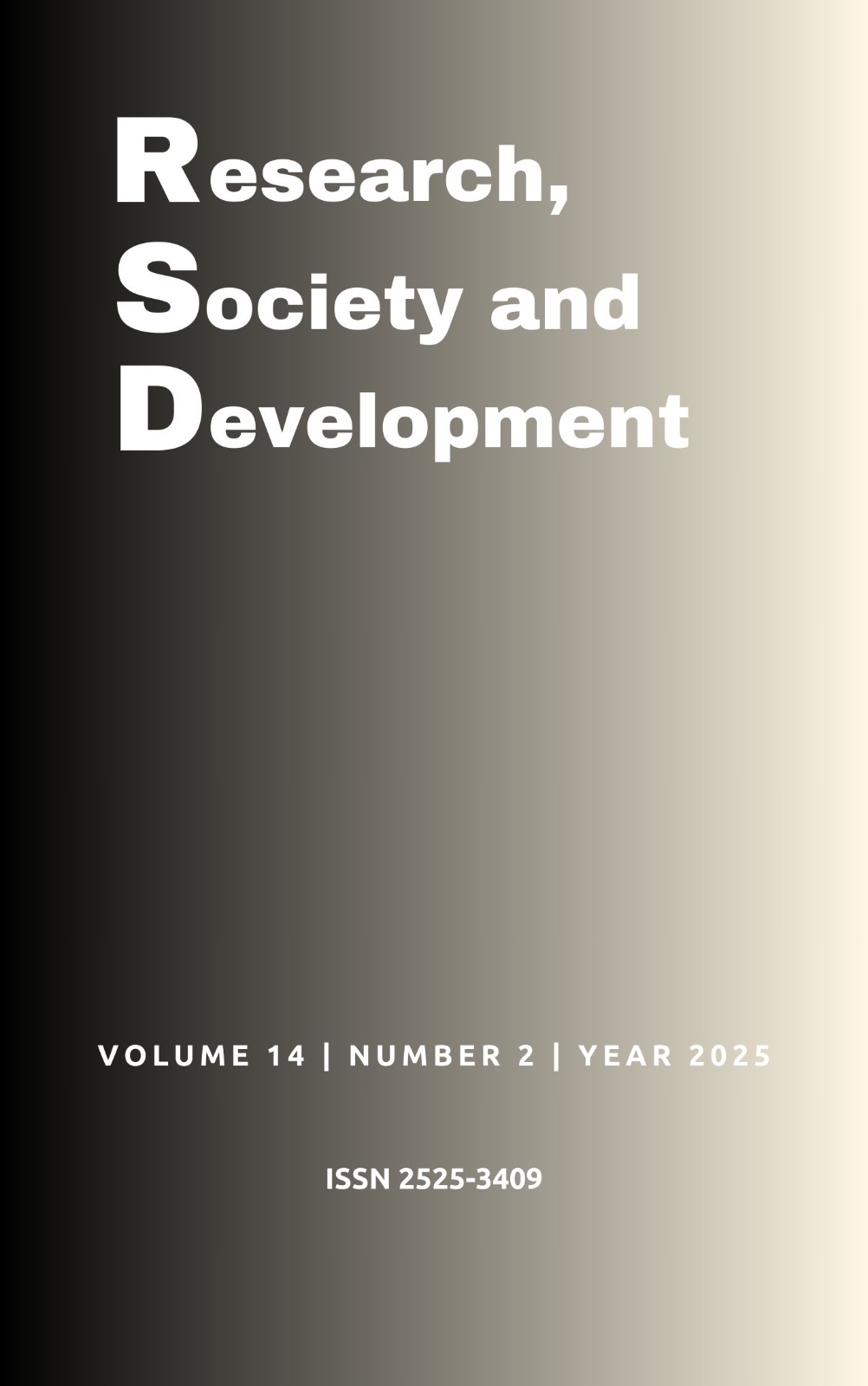Increase in Dengue cases in São Paulo from 2023 to 2025: An epidemiological analysis
DOI:
https://doi.org/10.33448/rsd-v14i2.48223Keywords:
Dengue; Aedes aegypti; São Paulo; Control; Prevention.Abstract
The objective of this article is to present an analysis of the increase in dengue cases in the state of São Paulo between 2023 and 2025, investigating epidemiological trends and the factors that contributed to the growth in disease incidence.Dengue, transmitted by the Aedes aegypti mosquito, continues to pose a major public health challenge in Brazil, exacerbated by urbanization, poor sanitation, and rising temperatures. The research indicates a significant rise in cases, especially in areas with higher population density, such as the capital and Greater São Paulo. The introduction of the dengue vaccine into the Unified Health System (SUS) in 2023 marked an important step forward, but vector control remains essential. The article also discusses preventive actions, including the management of mosquito breeding sites and community mobilization. It concludes that the combination of preventive measures, vaccination, and active public engagement is crucial for containing the disease and improving public health in the country.
References
Andrade, D., & Gonçalves, J. C. G. (2025, janeiro 10). Políticas públicas: o que são e para que servem? Politize. https://www.politize.com.br/politicas-publicas/
Brasil. (2016, junho 27). Lei nº 13.301, de 27 de junho de 2016. Dispõe sobre a adoção de medidas de vigilância em saúde para a prevenção e o controle de doenças causadas pelo Aedes aegypti e dá outras providências. Diário Oficial da União: seção 1. https://www.planalto.gov.br/ccivil_03/_ato2015-2018/2016/lei/L13301.htm
Brasil. (2024). Dengue. Ministério da Saúde. https://www.gov.br/saude/pt-br/assuntos/saude-de-a-a-z/d/dengue
Brasil. (2025). Ministério da Saúde monitora provável aumento de casos de dengue em São Paulo em 2025. Ministério da Saúde.
Brasil. (2007). Sistema de Informação de Agravos de Notificação (SINAN): Doenças e Agravos de Notificação. Ministério da Saúde. Secretaria de Vigilância em Saúde. Departamento de Vigilância Epidemiológica.
Bricks, L. F. (2004). Vacinas para a dengue: perspectivas. Pediatria, 26(4), 268-281.
Caprara, A., et al. (2015). Entomological impact and social participation in dengue control: A cluster randomized trial in Fortaleza, Brazil. Transactions of the Royal Society of Tropical Medicine and Hygiene, 109(2), 99-105. https://doi.org/10.1093/trstmh/tru187
Elidio, G. A., et al. (2024). Atenção primária à saúde: A maior aliada na resposta à epidemia da dengue no Brasil. Revista Panamericana de Salud Pública, 48, e47.
Gomes, J. P., et al. (2010). Dengue no Brasil: O que se sabe sobre o impacto econômico da doença. Medwave, 10(8), e4709.
Gil, A. C. (2017). Como elaborar projetos de pesquisa (6ª ed.). Editora Atlas.
Massad, E., et al. (2003). Dengue and the risk of urban yellow fever reintroduction in São Paulo State, Brazil. Revista de Saúde Pública, 37, 477-484.
Medeiros, E. A. (2024). Desafios no controle da epidemia da dengue no Brasil. Acta Paulista de Enfermagem, 37, eEDT012.
Pereira, A. S., et al. (2018). Metodologia da pesquisa científica [free e-book]. UAB/NTE/UFSM.
Pinto, A. G. G. (2009). Direitos fundamentais: legítimas prerrogativas de liberdade, igualdade e dignidade. Revista da EMERJ, 12(46). https://www.emerj.tjrj.jus.br/revistaemerj_online/edicoes/revista46/Revista46_126.pdf
Shitsuka, R., et al. (2014). Matemática fundamental para tecnologia (2ª ed.). Editora Erica.
Toassi, R. F. C., & Petry, P. C. (2021). Metodologia científica aplicada à área da saúde (2ª ed.). Editora da UFRGS.
Valadares, A. F., Rodrigues C. Filho, J., & Peluzio, J. M. (2013). Impacto da dengue em duas principais cidades do Estado do Tocantins: Infestação e fator ambiental (2000 a 2010). Epidemiologia e Serviços de Saúde, 22(1), 59-66.
Vieira, S. (2021). Introdução à bioestatística. Ed. GEN/Guanabara Koogan.
Downloads
Published
How to Cite
Issue
Section
License
Copyright (c) 2025 Ítalo Carneiro de Oliveira; Thais Gisele Bastos Gonçalves; Victor de Oliveira Hortélio; Helton Zheus Azevedo Mota; Lucas Cerviño de Carvalho; Maria Inez de Santana; Carlos Lopatiuk; Ana Rita Barreiro Chaves; Andréa Aparecida de Almeida Duarte; Isabela Formiga Nogueira

This work is licensed under a Creative Commons Attribution 4.0 International License.
Authors who publish with this journal agree to the following terms:
1) Authors retain copyright and grant the journal right of first publication with the work simultaneously licensed under a Creative Commons Attribution License that allows others to share the work with an acknowledgement of the work's authorship and initial publication in this journal.
2) Authors are able to enter into separate, additional contractual arrangements for the non-exclusive distribution of the journal's published version of the work (e.g., post it to an institutional repository or publish it in a book), with an acknowledgement of its initial publication in this journal.
3) Authors are permitted and encouraged to post their work online (e.g., in institutional repositories or on their website) prior to and during the submission process, as it can lead to productive exchanges, as well as earlier and greater citation of published work.

